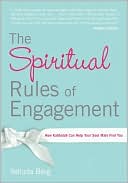 The Drama of the Gifted Child: The Search for the True Self by Alice Miller examines the loss of the self that occurs in childhood and the subsequent process by which an adult can retrieve his or her true identity that was misplaced in earlier years. The term “gifted child” refers to the child, who at an early age is acutely and intuitively aware of the parent’s needs. This book focuses on the recuperation process that follows an “abusive” childhood, defined as a growing up in a family environment in which a child had no choice but to acquiesce to the emotional needs of a parental figure. This results in a child ignoring his or her own needs, which results in the disappearance of the “real” self.
The Drama of the Gifted Child: The Search for the True Self by Alice Miller examines the loss of the self that occurs in childhood and the subsequent process by which an adult can retrieve his or her true identity that was misplaced in earlier years. The term “gifted child” refers to the child, who at an early age is acutely and intuitively aware of the parent’s needs. This book focuses on the recuperation process that follows an “abusive” childhood, defined as a growing up in a family environment in which a child had no choice but to acquiesce to the emotional needs of a parental figure. This results in a child ignoring his or her own needs, which results in the disappearance of the “real” self.
The core concept of this book is that a child is able to survive an abusive childhood by developing a “gift” of an adequate defense system. Alice Miller serves as the medium to articulate childhood suffering and describe the adult’s lack of empathy that develops toward one’s own fate. This book is designed to serve as an affirmation of and sympathetic message for the neglected, battered, and abused adults as well as the damaged child he or she once was. Miller emphasizes that children who are belittled and manipulated by parents are damaged much like those who are brutalized.
The book is a first person account of a psychoanalyst who describes her experiences of being a gifted child and the work she has conducted with such clients. The Drama of the Gifted Child serves as a source of validation, normalization, and empowerment for adults who maintained and developed themselves to conform to other people’s needs as a means of survival. An adult often does not realize that his or her experiences were exploitative nor do they consider themselves as having stemmed from abusive childhoods. Miller gives the gifted child a title and description in words and concepts which are often not recognized or accepted by society or the adult client.
This book would be useful for clients in conjunction with psychotherapy, but should be appropriately assigned and discussed. Miller’s work is rich in psychoanalytic terms and concepts. It was designed for educated adults with an above average knowledge of psychological jargon combined with the ability and readiness to probe the depths of his or her childhood memories. Miller, herself a therapist, discusses and directs some of the dialogue in the book toward “parental” children, another term for the gifted child, who grow up to become therapists themselves. She discusses how the child’s ability to perceive and respond intuitively to his or her parent is then extended and perfected. Later, the parental child not only becomes a parent, confidant, comforter, advisor, and supporter of his or her own parent and siblings, but eventually develops a special sensitivity to the subtle signals to the needs of others. Miller remarks “No wonder that the gifted child chooses the psychoanalytic profession later on. Who else, without this previous history, would muster sufficient interest to spend the whole day trying to discover what is happening in another person’s unconscious?” (p.9). She discusses that the development and perfection of such hypervigilance, which once assisted the child in surviving and now serves as a profession, also contains the root of his or her narcissistic disturbance.
Miller helps the reader intellectualize as well as emotionally experience the past use and abuse he or she underwent as a child and how it, in turn, has affected the client currently. The book is useful in facilitating discussion regarding how, why, and to what degree the client identifies with the literature as well as allows the therapist to discuss the rationale behind assigning the work as a supplement to therapy. She explores methods to recapture the real self by advocating the disregard of the parent’s expectations, which have since been internalized and carried into adulthood. Miller discusses allowing the adult parental child to mourn and repossess the true self. She focuses on eradicating the emotional unavailability and inaccessibility in adulthood, which is a result of being aware and sensitive at an early age. The book serves to help the gifted adult regain the lost capacity for genuine emotional responses by advocating definition, identification, and education from the past and feeling repressed emotions in the present.
This book focuses on the author’s and her clients’ individual case histories rather than generalizing about society as a whole. Miller presents the reader with self-disclosure combined with psychoanalytic theory. The author is candid about her feelings of sadness and pity for the gifted child as well as for the parents who perpetrate and perpetuate such a role in their own children. She acknowledges the abuse that a parental child has endured and reassures the adult that his or her true self does wait for reunification.
A psychotherapist should be cognizant that Miller’s book has weaknesses to its use as a therapeutic tool. The primary difficulty is understanding the terms utilized in the book. She builds up on psychodynamic concepts and incorporates them into her book without definition or reference resulting in limited comprehension and a vague understanding of her key points. This makes it cumbersome for the lay-person to decipher what the author means by “abused,” “gifted,” “true/false selves,” and “narcissism” since, out of the context of the psychoanalytic approach, these words may take on different meanings. The title itself could be confusing given that the gifted child is often easily confused with a child who is intellectually gifted.
Miller’s book serves as a complementary technique to the therapeutic process of the parental child client. The author offers respect, admiration, and empowerment for the reader who was rewarded for his or her lack of emotion as a child, yet punished as an adult by the loss of the self.
Editorial Reviews
Review
‘Rare and compelling in its compassion and its unassuming eloquence…her examples are so vivid and so ordinary they touch the hurt child in us all’ NEW YORK MAGAZINE
Product Description
Miller’s wide and profound book about childhood trauma has provided thousands of readers with guidance and hope, and is essential reading for those interested in psychology, psychotherapy, and more.
Language Notes
Text: English (translation)
Original Language: German
About the Author
Alice Miller has achieved worldwide recognition for her work on the causes and effects of childhood traumas. She is the author of many books, including The Truth Will Set You Free, Banished Knowledge, Thou Shalt Not Be Aware, and For Your Own Good. She lives in Switzerland.




